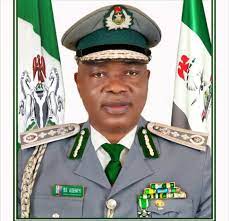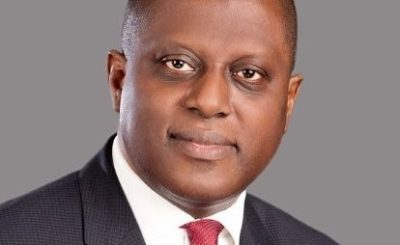By Suleiman Tariff &Elizabeth Chukwuma
Presidentt Bola Ahmed Tinubu, appears to be under intense pressure from the Organized Private Labour, OPS, Northern Elders Forum, Afenifere and the Opposition Labour Party, LP, to reverse the decision of the Nigerian Electricity Commission, NERC, under the close watch of Musiliu Oseni, to increase Electricity Tariff for the Nigerian customers on Band A from N66.00 to N225 kilowatt per hour.
The NERC, Chief Executive officer, CEO, had created the impression in the mind of Nigerians that the 20% increment in Electricity Tariff will not affect customers in other bands which was begging the question. Describing the Electricity Tariff increase as a reckless move by the Tinubu’s Administration and complete disregard for the well-being and welfare of Nigerians, the Northern Elders Forum had said that that that Electricity Tariff increase would have ‘’a significant negative impact on the already hungry Population struggling on a daily basis to survive’’.
Abdilazeez Suleiman, the NEF, spokesperson, who may have spoken the mind of members had said that the NERC drastic increase in Electricity Tariff if not reversed by the Nigerian President without delay will further ‘’exacerbate the widening between the rich and the poor in Nigeria’’.
He was emphatic that the ‘’ill-conceived decision by NERC was not necessary for now because of the dire economic situation faced by majority of Nigerians which has to with naira fluctuation in the country’s Autonomous Foreign Exchange Market, AFEM and the Parallel, popular, Black Market foreign exchange market and the removal of Premium Moor Spirit, PMS, popular , Petrol subsidy by the government on May 29, 2023., resulting in high cost of cost of goods and services due to the increase in transportation.
The NEF Leadership may have sent a message to Tinubu, who incidentally was a former Lagos state governor that the Electricity Tariff hike had come at a wrong time , noting that under the NERF new tariff plan , 24 hours of electricity will cost the consumer a staggering N5,400.00, or N162,000.00 monthly and an astounding sum of N1,971,000.00 yearly.
NEF Leadership were said to have made it categorically clear to the President that the NERC, new Electricity hike are simply’’ unaffordable by the majority of Nigerians still grappling with the harsh economic situation of the country’’. The Northern Elders may have shocked Nigerians when it stated that ‘’instead of the eight month –old administration of Tinubu implementing policies that would alleviate the suffering of the people,’’ the government, has chosen to further exploit them’’.

It noted that the introduction of the Electricity Hike by NERC at he instance of mi Adebayo Adelabu led ministry of Power which has the backing of President Tinubu ‘’is not only unjust but a clear indication of the disconnect between the government and governed and a betrayal of the trust placed in them’’.
Afenifere, the Yoruba socio-cultural Organization, which currently has two presidents, one faction led by Reuben Fasoranti, recognized by the Nigerian President and another faction led by Ayo Adebanjo, may have lent their voice to the call by NEF on the government to reverse the NERC, Electricity Tariff Hike without further delay. It could not be ascertained which faction had made the call. The Afenifere Group had made it clear to the President that asking Nigerians to pay for the new Electricity Tariff is’’ like paying for inefficiency and further compounding the country’s economic woes’’.

The Yoruba socio-cultural Organization had decried the over 200% Electricity Tariff increase , stating that it will thwart the current government’s effort at boosting the economy as businesses will collapse’’. The Afenifere Leadership had alluded to the President’s speech of the role which the private sector plays on the growth of the economy. The Group had told the former Lagos state governor that ‘’if the private sector is not flourishing, there will be no growth, no prosperity, no employment and development in the country’’.
Appealing to President Tinubu to compel Adelabu, the minister of Power, who had said that only 15% of Electricity consumers in Nigeria which translates to only 1.5 customers would be affected by the Electricity Tariff Hike to reverse it and go into the provision of alternative sources of energy supply like solar and wind , which it had described as more innovative, stressing that it is the only way consumers will get the real value for whatever they pay for in Electricity Tariffs.
The Organization would want the Nigerian government to first ensure regular and efficient supply of electricity before approving NERC’s request to increase payment for its service that are currently being poorly rendered across the country.
Afenifere had said that a rough calculation going by the new Electricity Tariff indicated that an electricity consumer on Band A, who was initially paying an average of N50,000. 00 on a 68 Kilowatt per hour would now be made to pay N170,000.00 for the same poor service.
‘’ It is noteworthy that the Federal ministry of Power and its agency, NERC, are more interested in the revenue that would be generated for the government without first ensuring regular and efficient supply of electricity in the country’’, the Group had said.
The Afenifere Leadership would not take as an excuse the claims by the ministry of Power and NERC, officials, that the increase in the cost of gas was instrumental for the hike in the country’s Electricity Tariff , noting that ‘’the government agency are only passing their own gross inefficiency on the people rather than exploring ways to reduce the cost of producing energy to further reduce the pains on Nigerians’’.

Yusuf Ali, NERC, Commissioner for Planning, Research and Strategy, who had appeared on Channels Television recently had said actually that the biggest problem the Commission had faced in fixing the new electricity tariff was ‘’the issue of gas price’’. According to him, the gas price for the nation’s power sector is indexed to the US dollar. He had said that in December 2022, when the tariff was first set, the gas price was set at $2.18 per one million British thermal units, MBTU, or N930.00 for every unit of gas.
Ali, the NERC, Commissioner, noted that as at today, the price of gas had been highly increased by 11%, by the Nigerian National Petroleum Corporation , now baptized Nigerian National Petroleum Company, NNPC , with the signing into Law of the Nigerian Petroleum Industry Bill passed by the National Assembly by former President Muhammadu Buhari in August 2020, thus costing N3,500 for every unit of gas, the Commission to make decision that would favour the government, investors and the consumers being in the middle.
He had alluded to the letter written to the agency last July by the Licensees, which are the Distribution Companies, DisCos, that they would want a new electricity tariff because the naira to the US dollar exchange rate has changed .
As a prelude to the new electricity tariff hike, the NERC Commissioner for Planning, Research and Strategy had revealed that for a week in whole of July , 2023, they held rate case earnings which is in line with’’ international best practices’’. He did not stop there. He further stated that they had invited some consumers to discuss the proposal by the DisCos.
He may have hit the nail on the head that agency was encouraged to hike the electricity tariff this week when the government declared that from this April, 2024, that it will no longer be willing to pay the subsidy on electricity, urging the NERC, to design a tariff regime with the distribution companies that would save the country N1.4 trillion currently spent on the subsidy. The fallout was the new electricity tariff that had been released by NERC, amidst criticisms by Nigerians.
The Commissioner may have sent a message to consumers that there will still be another major review of the country’s electricity tariff in the next five years that will require stakeholders’ engagement to get input in determining the new tariff.
He had said that there are three types of electricity tariff reviews that are carried out by the agency, noting that each of the reviews have different procedures to show how to go about them. Ali, the NERC, Commissioner had described what the agency had done this first week of April as minor electricity tariff revie. Another of such reviews was the month on month as it does not require any consultations with the consumers.
Notwithstanding the claims of NERC ,to justify the tariff hike on electricity, The Afenifere Group had said that there was no basis for NERC to latch on the increase on the cost of procurement of gas and the decision by the government to stop payment of electricity subsidy, to rush to increase Electricity tariff for Consumers labelled as Band A, alluding to the report by Price Waterhouse Cooper, PWC, that had indicated that ‘’harnessing the nation’s gas proven gas reserves can stimulate an estimated Gross Value Added , GVA, of the North American country of the United States , US, $18.3 billion annually to the economy.
At present, the country’s gas production is standing at an average of 2.53 trillion cubic feet, meaning that what is being extracted for proper utilization is less than one percent of Nigeria’s reserves and where what is used by the country’s power generating Companies to generate electricity bought by the distribution companies.
The Organised Labour , had said that the electricity tariff hike is ‘’ insensitive and unpopular’’ , warning that if the government is determined to go ahead with the collection of the new tariff , it should equally be prepared for the consequences of that evil as they will mobilize workers on the streets to protest against the unpopular policy if not dropped.
Labour had made it clear to the government that there is no place in the world where high power tariffs have supported manufacturing, not even in the developed economies. Benson Upah, Nigerian Labour Congress, Head of Information may have Nigerians to know that electricity tariff hike was the imagination of the minister of Power who have the audacity to say that the policy will be implemented.
Upah had said that the Nigerian President and the minister are merely acting out the script of the World Bank and the IMF which do not want Nigerians to enjoy any form of subsidy from the government as a way to save money to grow the economy. They are the international Institutions driving this highly dangerous policy, the NLC, Head of Information had said. ‘’This is going to hurt business and further heat up the economy’’. Had further remarked.






